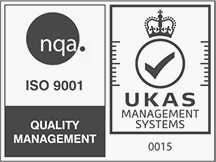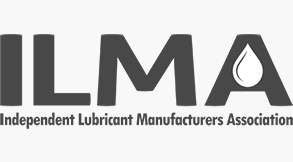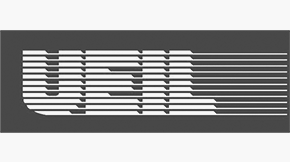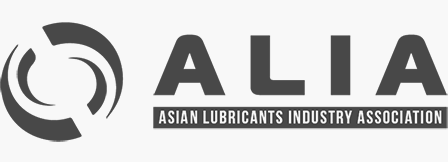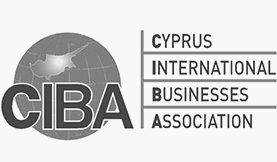Shamrock features in the latest edition of Lubezine Magazine, a leading publication in the African lubricants market. The article is written by Céline Boutier, Managing Director at Shamrock.
The African lubricant market is confusing and fragmented at the best of times. Trying to navigate each port’s infrastructural and logistical nuances, customs and political situations, can be quite daunting – even for the most seasoned African business-doers. And yet, it’s a growing market. Globally, the base oil market size is projected to reach USD 41.68 billion by 2020.
Most conventionally, base oils and additives are transported in bulk vessels and ISO tanks, but since 2010, the trend for base oil transportation by flexitank has been continuously growing.
Flexitanks are soft bags that fit in standard sea freight containers and can be loaded with non-dangerous liquids and dry cargoes – about 20T per container. They can be used to transport this cargo via road, rail or sea and can also be used as a storage solution.
Supply chain challenges
Not many ports can lay claim to having zero-glitch, smooth operations, but perhaps none so more than a lot of Africa’s ports. The factor plaguing ports, such as in South Africa, Kenya and Nigeria, is congestion. On average, cargo will spend nearly three weeks in Sub-Saharan African ports. This really hits home when you compare it to the week (or less than) that cargo spends in large ports in Asia, Europe and Latin America.
This comes down not only to insufficient infrastructure, but also that ports are still a cheaper mean of storage than many external facilities.
Normally when vessels are awaiting berth (which could up to 30 or even 45 days), receivers are due to pay demurrage costs. For a 3-5,000-ton shipment, it’s around USD 12,000 per day until the vessel is able to berth and discharge the product. However, when there’s congestion at the container terminal, demurrage only kicks in from the moment the container has been discharged from the vessel. Shippers take advantage of this at the expense of ports and terminals.
On top of this, customers are given between 7 and 21 days to pick up their products and return the container back to the port.
Sourcing is another challenge. Africa’s refining capabilities are limited and it relies heavily on imports. Only few countries, such as Egypt, Algeria and South Africa, have base oil refineries and some countries have re-refining production facilities. However, even in Egypt, which has the largest capacity, blenders still rely on import for some specific grades.
The local production of base oils is simply not sufficient to satisfy the demand of local blenders and so, a lot of African countries were until now relying on importing the majority of base oils from European and CIS refineries. The challenge here was that the refining sector in Europe was for some time characterized by overcapacity, underutilization, thin margins, and shifting ownership. This led to many across Europe closing over the past few years to decrease exposure to underperforming downstream operations.
Additionally, regulatory and market pressures in some African countries are speeding up the changeover to higher performance lubricants with the increase of import of group II and group III base oils which are mainly being produced in Asia and North America.
With globalization, the change of traditional sourcing hubs and infrastructural limitations, African blenders must look to new technologies and new ways of working to sustain the ever-growing lubricant market.
Flexitanks: the silver bullet?
Flexitanks are by no means a new technology; its roots can be traced back to 1970s when UK shippers began experimenting with moving liquids to South Africa and Australia in heavy duty rubberized bladders. Of course, nowadays the technology has advanced!
Since 2000 there has been an unprecedented growth of this new and efficient method of transporting liquids, as bulk shippers continue to look for new opportunities to lower costs. Current projections are that the global flexitank market will reach USD 922.3 million by 2022.
Africa and the Middle East represent 6% of the global flexitank market and, in 2015, 54,000 flexitanks were shipped. At current growth rates, this is expected to increase to at least 80,000 flexitanks this year (about 1.6 million tons).
The popularity of flexitanks can be boiled down to their cost-efficiency and flexibility.
For African importers of base oils, they can be particularly beneficial by providing a means of getting around the logistical limitations of African ports. Flexitanks optimize the supply chain, allowing the base oils to be loaded directly at the refinery and delivered straight to the blender, without the need for storage or transshipment and, importantly, without any hidden costs. This reduces time spent at the port.
Perhaps the greatest advantage of flexitanks, however, is the benefit of market accessibility. Flexitanks mean that blenders no longer need to be bound by the limited product offering of local distributors; they can source any product from anywhere in the world. This is especially attractive to SMEs who would otherwise be unable to compete with the big players. With flexitanks they can order smaller volumes of the best product, thereby limiting their exposure to market price volatility and giving them greater control of their cashflow.
Similarly, exporters can transport their product to anywhere in the world, even landlocked countries. Flexitanks are a multimodal transport so can be used to transport base oils by road, rail and sea.
Ultimately, flexitanks can encourage the production of finished lubricants rather than the import of them, which will inevitably boost the economy.
Shamrock’s mission over the past few years has been to connect refineries and blenders together in a more direct and transparent manner using flexitanks as the transportation method.
What’s next?
More innovations are likely to be adopted in the coming years as more focus is placed on efficiency and cost reduction. Already we are seeing opportunities for storage flexitanks, which allow for a more flexible and economical alternative to shore tanks and additional savings for importers.
About Shamrock
Shamrock Shipping & Trading Ltd has been involved in the trading, shipping and distribution of Petroleum Products over the past 15 years.
With a highly experienced and skilled team, our company has developed over the years as a reputable and recognized name in the base oils and lubricants industry. Known for a high level of service and knowledge, we aim to maintain, above all, a trustful cooperation with all our partners.
Today, Shamrock is the global leader in flexitank deliveries and the ‘one stop shop’ in the lubricants industry, offering a full range of products and integrated services to meet all the base oil and specialty blending needs of our clients. Our clients benefit from consistent supply options from the most reliable refineries worldwide and the most favorable logistics and financing terms.
Our goal is to continue achieving the high standards set by our Company, and maintain Shamrock’s ever presence as a leading partner in the base oils and lubricants industry.
